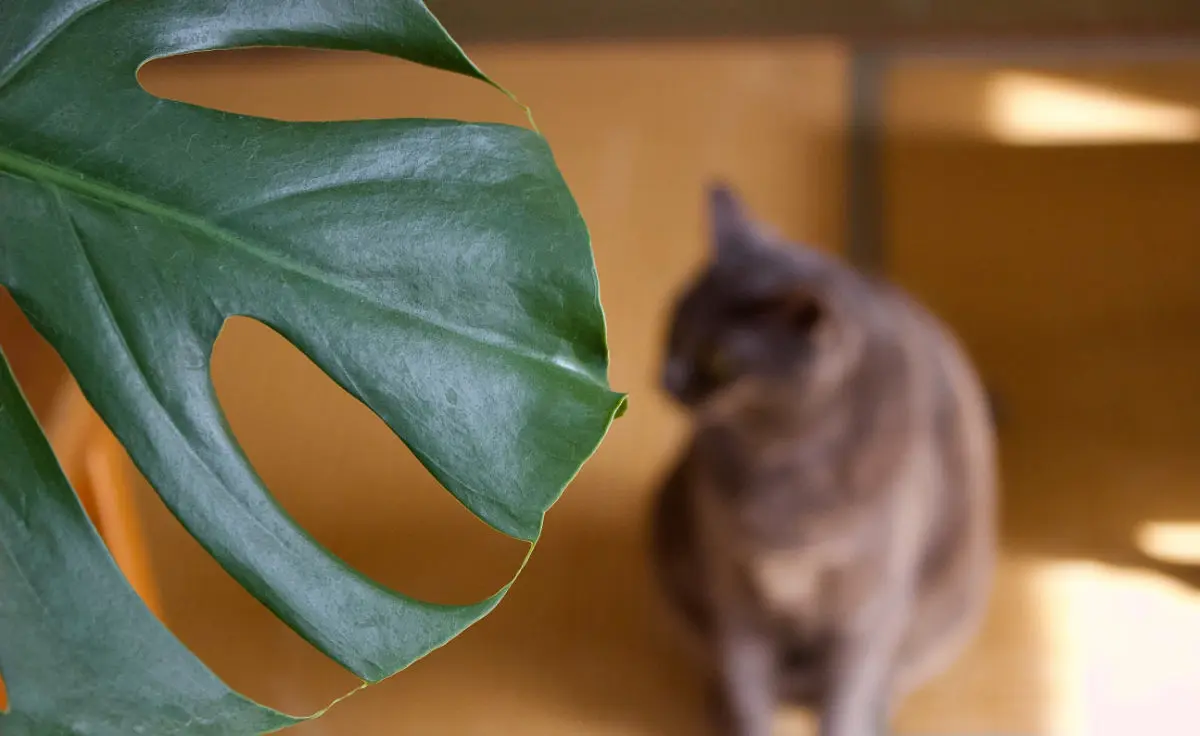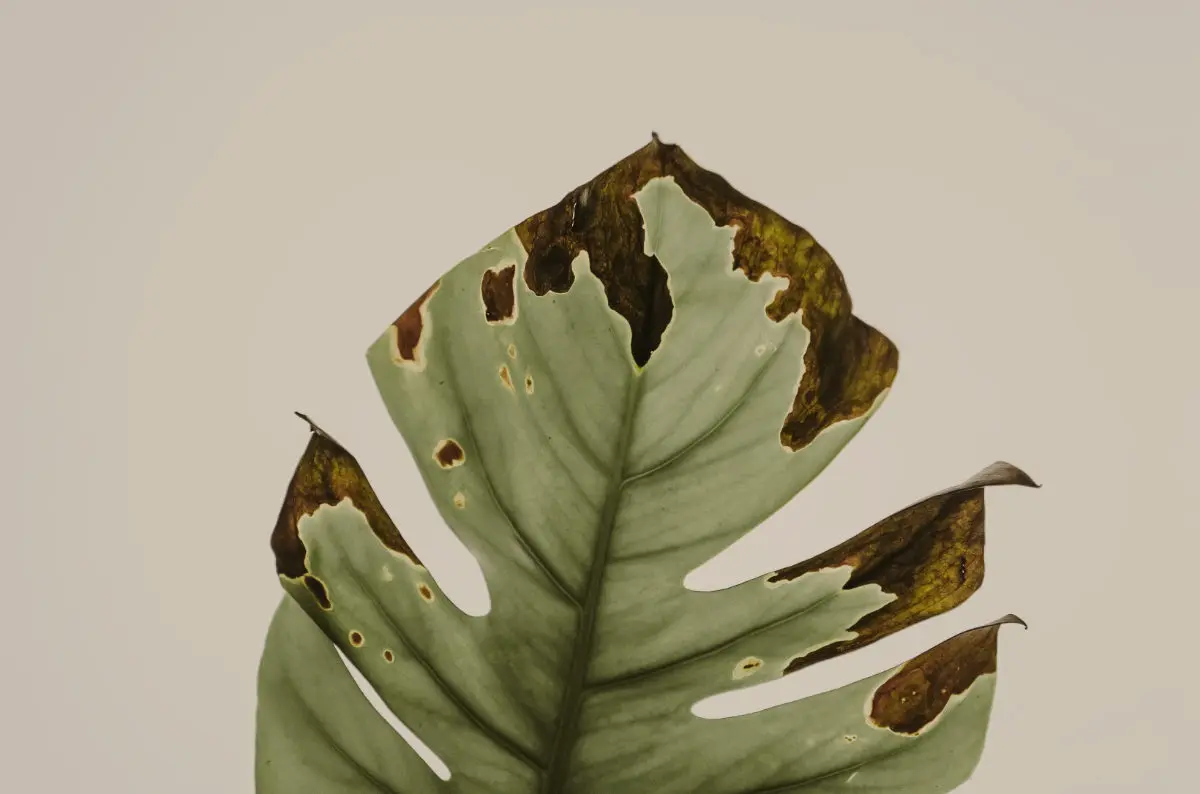Are Monstera Plants Toxic to Dogs?
Are you wondering if monstera plants are toxic to dogs? Find out the answer to this question and learn how to keep your furry friends safe around these popular houseplants.
By Tobias Holm
If you're a proud pet owner and a plant enthusiast, finding the perfect balance between creating a lush indoor jungle and ensuring the safety of your furry companions can be quite a challenge. While the majestic Monstera plants have recently gained popularity as a must-have houseplant, a lingering question looms in the minds of concerned pet parents:
Are Monstera toxic to dogs?
In this blog post, we embark on an insightful journey to shed light on this pressing topic, exploring the impact of Monstera plants on our canine friends and providing you with the essential knowledge to maintain a pet-friendly and vibrant home environment.
So, put your worries to rest as we delve into the mysterious realm of Monstera and address the safety concerns that often occupy the minds of loving dog owners.
Understanding the toxicity of Monstera plants to dogs
Monstera plants, scientifically known as Monstera deliciosa, are popular indoor plants due to their attractive foliage and ability to purify the air. However, these plants contain substances that can be toxic to dogs if ingested. The primary toxic component in Monstera plants is calcium oxalate crystals, which are found in various parts of the plant, including the leaves, stems, and roots.
When a dog chews or bites into a Monstera leaf, the calcium oxalate crystals are released. These crystals can cause irritation and inflammation in the mouth, throat, and gastrointestinal tract. It can also cause drooling, difficulty swallowing, oral irritation, vomiting, and diarrhea. The severity of the symptoms depends on the amount ingested and the size of the dog.
While Monstera plants are generally safe to have around dogs if they are not ingested, it's crucial to be cautious, especially if you have a curious or mischievous pup. Keep an eye on your furry friend and consider pet-proofing your home by placing the plant out of reach or using barriers to prevent access.
Signs and symptoms of Monstera plant poisoning in dogs
If your dog has come into contact with Monstera leaves or has ingested any part of the plant, it's essential to be vigilant for signs of poisoning. The most common symptoms of Monstera plant poisoning in dogs include drooling, pawing at the mouth, and vomiting. These initial symptoms are typically mild and may not appear immediately after exposure.
As the calcium oxalate crystals irritate the dog's mouth and throat, more severe symptoms may develop. These can include difficulty swallowing, swelling of the tongue and throat, and excessive salivation. In some cases, dogs may also experience abdominal pain, diarrhea, or respiratory distress.
It's crucial to note that the severity of the symptoms can vary depending on the individual dog and the amount of plant material ingested. If you suspect your dog has been exposed to Monstera plant toxicity, it's important to contact your veterinarian immediately for guidance and potential treatment.
Immediate steps to take if your dog ingests Monstera leaves
If you catch your dog munching on Monstera leaves or suspect they have ingested any part of the plant, it's crucial to take immediate action. Remember, time is of the essence when it comes to mitigating the potential harm caused by plant toxicity.
First, try to remove any remaining plant material from your dog's mouth. Be cautious while doing so, as your dog may be in pain or distress. Use a clean cloth or gauze to wipe away any visible plant debris, being careful not to get bitten in the process.
Next, rinse your dog's mouth with water to help flush out any remaining calcium oxalate crystals. You can use a syringe or a small cup to gently pour water into your dog's mouth, ensuring they don't swallow too much water at once. Repeat this step a few times to ensure thorough rinsing.
After rinsing the mouth, offer your dog a small amount of water to drink. This will further help to dilute any remaining toxins and soothe the irritated tissues.
Treating Monstera plant poisoning in dogs
If your dog exhibits severe symptoms or if you're unsure about the extent of their exposure to Monstera plant toxicity, it's crucial to seek immediate veterinary care. Your veterinarian will evaluate your dog's condition and may recommend treatment options based on the individual situation.
In some cases, the veterinarian may induce vomiting to remove any remaining plant material from your dog's stomach. They may also administer activated charcoal to help absorb any toxins that may have been absorbed into the bloodstream. Supportive care, such as intravenous fluids or medications, may be necessary to manage symptoms and aid in the recovery process.
It's important to follow your veterinarian's advice and closely monitor your dog's condition during the treatment and recovery period. If your dog has a severe allergic reaction or experiences breathing difficulties, they may require emergency intervention, so it's essential to act quickly.
Preventing Monstera plant poisoning in dogs
Prevention is always better than cure when it comes to protecting your dog from potential hazards. To prevent Monstera plant poisoning in dogs, consider implementing the following measures:
- Pet-proof your home: Ensure that Monstera plants are placed in areas that are inaccessible to your dog. Use barriers, shelves, or hanging baskets to keep the plants out of reach.
- Supervise your dog: Keep a close eye on your dog when they are near indoor plants. If you notice them showing interest in the plants, redirect their attention to an appropriate toy or activity.
- Train your dog: Teach your dog the "leave it" or "drop it" commands to discourage them from investigating or chewing on plants.
- Provide pet-friendly alternatives: Consider introducing pet-friendly plants into your home, such as spider plants or Boston ferns, which are generally safe for dogs.
By taking these preventive measures, you can create a safe environment for your dog while still enjoying the beauty and benefits of indoor plants.
Alternatives to Monstera plants for pet-friendly households
If you're concerned about the potential risks associated with Monstera plants, there are plenty of pet-friendly alternatives to consider. These plants can add a touch of greenery to your home without posing a danger to your furry friends. Some popular pet-friendly indoor plants include:
- Spider Plant (Chlorophytum comosum): Spider plants are safe for dogs and have attractive, cascading foliage that can thrive in various lighting conditions.
- Areca Palm (Dypsis lutescens): Areca palms are non-toxic to dogs and can bring a tropical vibe to your living space. They require bright, indirect light and moderate watering.
- Boston Fern (Nephrolepis exaltata): Boston ferns are safe for dogs and have lush, feathery fronds. They prefer bright, indirect light and high humidity.
- Money Tree (Pachira aquatica): Money trees are non-toxic to dogs and are believed to bring good luck. They thrive in medium to bright light and require moderate watering.
These are just a few examples of pet-friendly plants that can be a safer alternative to Monstera plants. Always research the specific care requirements of any plant you bring into your home and ensure it is safe for your pets.
Common misconceptions about Monstera plant toxicity
Despite the potential issues associated with Monstera plant toxicity for dogs, there are also several common misconceptions that deserve clarification. Let's debunk some of these myths to ensure you have accurate information:
- Myth: Monstera plants are highly poisonous to dogs. Fact: While Monstera plants can be toxic to dogs if ingested, the severity of the toxicity varies. The symptoms are typically mild to moderate and can be managed with prompt veterinary care.
- Myth: All parts of the Monstera plant are equally toxic. Fact: The calcium oxalate crystals are most concentrated in the leaves, but they are also present in the stems and roots. However, the leaves are the most commonly ingested part of the plant.
- Myth: Dogs will instinctively avoid toxic plants. Fact: Dogs are curious creatures, and their investigatory nature may lead them to explore plants, even if they are potentially harmful. It's important to take precautions to protect your dog from exposure.
By dispelling these misconceptions, you can better understand the risks associated with Monstera plant toxicity and take appropriate measures to keep your pets safe.
Other common household plants toxic to dogs
While Monstera plants may be a concern for dog owners, they are not the only indoor plants that can be toxic to dogs. It's crucial to be aware of other common household plants that may pose a risk if ingested. Some examples include:
- Lilies: Various species of lilies, including Easter lilies, can be highly toxic to dogs and can cause kidney failure if ingested.
- Sago Palm: Sago palms contain toxins that can cause liver failure in dogs. Both the seeds and the leaves are poisonous.
- Philodendron: Philodendron plants contain calcium oxalate crystals similar to Monstera plants and can cause irritation and swelling in the mouth and throat.
- Dieffenbachia: Also known as dumb cane, Dieffenbachia plants contain calcium oxalate crystals and can cause severe oral irritation and difficulty swallowing.
This is not an exhaustive list, and there are many other plants that can be toxic to dogs. It's important to research any plant you bring into your home and ensure it is safe for your pets.
Conclusion and final thoughts
As a responsible pet parent, it's crucial to understand the potential risks associated with common household plants like Monstera. While Monstera plants can be toxic to dogs if ingested, the severity of the toxicity varies. By being aware of the signs and symptoms of Monstera plant poisoning and taking preventive measures, you can create a safe environment for your four-legged companions.
Remember to pet-proof your home, supervise your dog around plants, and consider pet-friendly alternatives if you're concerned about the potential risks. If you suspect your dog has been exposed to Monstera plant toxicity, seek immediate veterinary care for appropriate treatment.
By staying informed and taking proactive steps, you can ensure the well-being of your furry friends while still enjoying the beauty and benefits of indoor plants.



